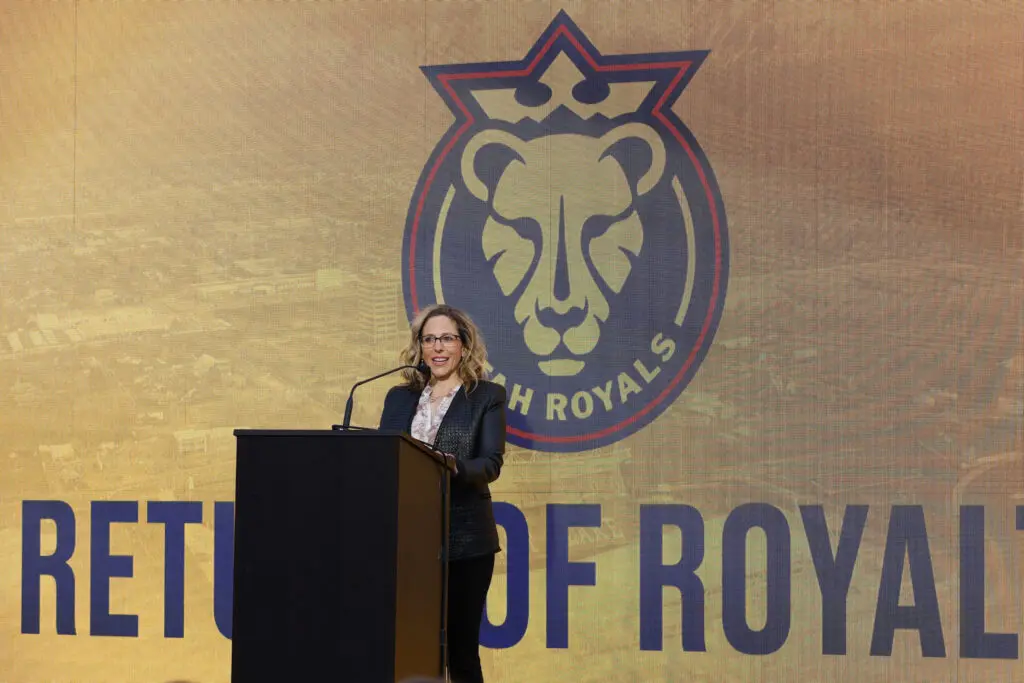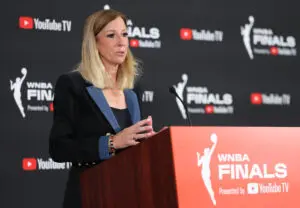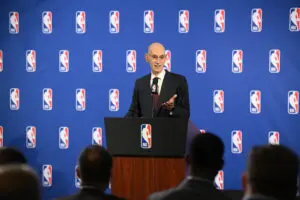The return of the Utah Royals to the NWSL will bring the league to another state where abortion is functionally illegal after the overturning of Roe vs. Wade.
Since the NWSL announced the Royals as an expansion team for the 2024 season earlier this month, commissioner Jessica Berman has addressed the league’s healthcare policies as they relate to such states with restrictive reproductive rights laws.
After the Supreme Court struck down Roe vs. Wad in June 2022, Berman had said that reproductive rights would be part of the discussion as the league considered expansion locations.
“It’s one of the things that we’re actually currently analyzing, which is looking even at our current markets to see where we have some differentiation between our values and what we stand behind relative to where we have teams located currently, and what are the solutions we can put in place that we feel comfortable we can commit to and execute on,” Berman told the media in July 2022.
The incoming Utah Royals owners had a contractual buy-in option after the previous iteration of the team ceased to exist in 2021, which will bring the franchise back to the NWSL at a predetermined fee of $3.5 million. And in addition to the Royals, the NWSL also has clubs in Texas and Florida, two of the most restrictive states in terms of access to legal abortions.
The solution appears to be financial support for NWSL players who might have to travel out of state for procedures rendered illegal in their home markets.
The Utah Royals have been steadfast in that support at the team level as well. Royals officials already have “promised the club will financially support players and staffers who may opt for the medical procedure,” they told the Salt Lake Tribune upon the announcement of the club’s return.
Royals President Michelle Hyncik also told the Tribune that the club will “provide reimbursements toward costs and to ensure that players and women throughout staff and organizations get the care that they need.”
Royals co-owner Ryan Smith also voiced his support and said it was “important across all of our organizations that that medical benefit was available.”
The state of Utah has a trigger law to ban abortions that went into effect after the overturning of Roe vs Wade, but that particular law has been tied up in litigation. State legislature, however, also has passed a law that will greatly restrict or possibly ban abortion in the state, and Gov. Spencer Cox has indicated he will sign it.
As part of the team’s expansion announcement, Berman said that the league “assesses reproductive rights not only for potential expansion teams, but also for teams already in the league.” She referred to the league’s “safety nets and systems in place through the league office where players can have their medical needs addressed, even if they have to leave the market, and we are here to support them to the extent that’s necessary.”
She further expressed faith in Utah ownership to align with the league’s values.
“We know the ownership group here (in Utah) is aligned to ensure that that’s the case,” Berman said.
The commissioner further clarified policy at the league level and the team level in a call with reporters on Monday.
“What we intended to share with the Utah announcement is that of course the players are our employees, and for our policy for the players to the extent they can have their medical needs addressed in their local market to the extent it’s permissible by law,” Berman said. “Our policy allows for insurance to cover them traveling, and being able to have their medical needs addressed.”
NWSL players are technically league employees, which allows the league office to create healthcare plans that can span the entire country. The Utah franchise also has a policy in place to afford similar benefits to the rest of their front office employees, Berman said.









